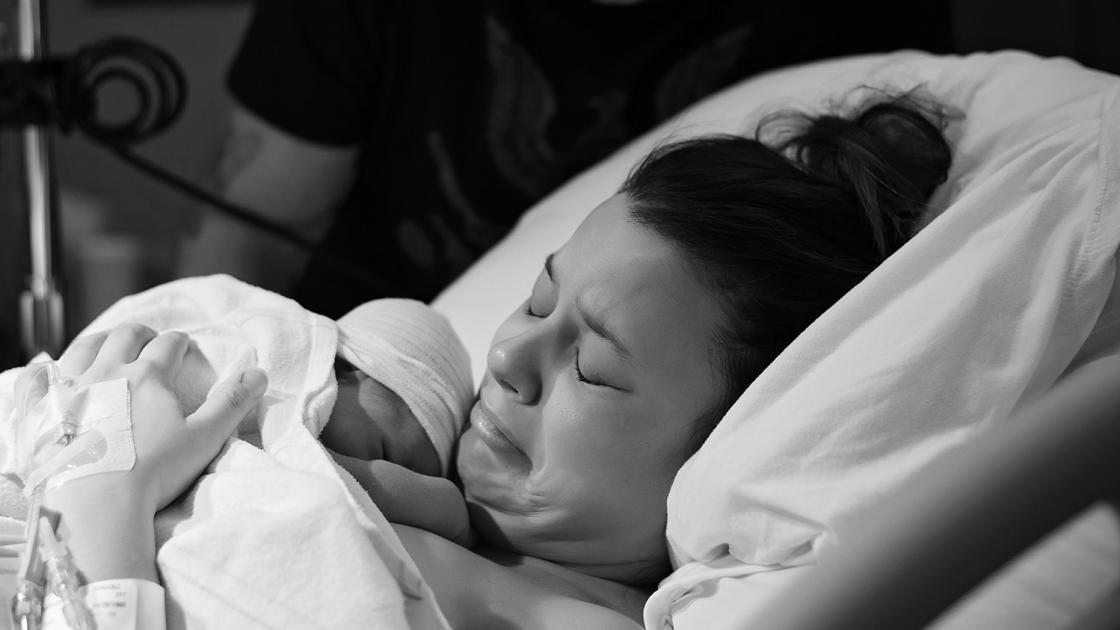
A Mother's Mortality
In the U.S., giving life can be a matter of death.
By Steve Sandstrom
The current generation of new moms in America face a higher risk of dying during childbirth than their mothers did 25 years ago. About 700 American women die each year from pregnancy complications and about 70 percent of these deaths are preventable.
Maternal morbidity (severe pregnancy complications) and mortality (death) are indicators of the overall health of a country, state or community. Among developed nations, the U.S. is one of 13 countries headed in the wrong direction, with a mortality rate comparable to Iraq and Iran.
New reports and some celebrity pregnancy stories may have helped create momentum to address the problem in Washington, D.C. Several federal proposals, including a pair sponsored by Sen. Kamala Harris, D-Calif., and Sen. Corey Booker, D-NJ, are making maternal health a key issue for the 2020 election. But it was a trio of Illinois’ congressional lawmakers who led the way. Senators Dick Durbin and Tammy Duckworth along with Rep. Robin Kelly proposed the Mothers and Offspring Mortality and Morbidity Awareness (MOMMA) Act in an effort to reduce this rising mortality rate. The legislation is based on findings in an October 2018 Illinois Department of Public Health (IDPH) report that examined pregnancy-related deaths and complications in the Land of Lincoln.
Robert Abrams, MD, is the director of obstetrics for the South Central Illinois Perinatal Center and executive director and associate professor at the SIU Center for Maternal-Fetal Medicine. Dr. Abrams has been a longstanding member of the Maternal Mortality Review Committee (MMRC) that helped IDPH produce its Illinois Maternal Morbidity and Mortality Report.
“Overall, the report shows that our state, and really the country as a whole, needs to improve access to care for mothers and infants,” Dr. Abrams said. “This report is a very in-depth look at the health care system women experience during pregnancy and childbirth, and should give every health care organization goals and objectives for the future.”
The report includes the following findings about maternal deaths:
- From 2008-2016, an average of 73 women died within one year of pregnancy in Illinois.
- In Illinois, non-Hispanic Black women are six times as likely to die of a pregnancy-related condition as non-Hispanic white women.
- In Illinois, 72 percent of pregnancy-related deaths and 93 percent of violent pregnancy-associated deaths were deemed preventable by the review committees.
- Obesity contributed to 44 percent of pregnancy-related deaths in Illinois in 2015.
In 2015, 36 pregnancy-related deaths were reported. The underlying causes of death included hemorrhage, infection, hypertension, mental health conditions, pulmonary embolism and cardiomyopathy.
The MMRC committee also explored the factors that contributed to the greatest number of pregnancy-related deaths. Substance use (14 percent) and mental health conditions (19 percent) were contributors to the toll. (National data indicate more pregnant women are using illegal drugs, and as a result, more infants are born with drug withdrawal issues.)
But by far, the most significant factor was obesity.
“The incidence of obesity among pregnant women is much greater than it was five years ago, which means other comorbidities such as diabetes, hypertension and preeclampsia are also more prevalent,” Dr. Abrams said. Preeclampsia, a complication causing high blood pressure for a pregnant woman, can only be cured by delivering the baby.
Women are becoming pregnant later in life, which also increases the risks.
“Women who are older tend to have more chronic conditions,” Dr. Abrams said. “Also, some women may have hypertension or diabetes, which isn’t diagnosed until they become pregnant. The rate of C-sections is going up as well, leading to more surgical complications.”
These factors can overlap at a time when a woman is at her most vulnerable, Dr. Abrams said. “I look at pregnancy as a stress test. The physiological changes to your body are considerable. Your heart has never pumped this much blood and will be under incredible stress. If there’s any underlying medical problem, pregnancy tends to exacerbate it.”
Pregnancy-related mortality is not equally distributed among all groups of women in Illinois. Black women are six times more likely to die and Hispanic women are twice as likely to die compared to white women who die from a pregnancy-related cause, according to the report. Women in their 40s were about six times as likely to die from a pregnancy-related cause as women in their 20s or 30s. Across the state of Illinois, women who lived in Chicago were the most likely to die from a pregnancy-related cause.
IN ILLINOIS, BLACK WOMEN ARE SIX TIMES MORE LIKELY TO DIE FROM PREGNANCY-RELATED CAUSES THAN WHITE WOMEN.
- ILLINOIS MATERNAL MORBIDITY AND MORTALITY REPORT
Identifying the impacts on different populations is an important first step in understanding the effects on public health, and how to appropriately target prevention efforts.
Careyana Brenham, MD, a family physician at SIU Medicine, believes better access to care is one of the solutions to address disparities. Dr. Brenham sees patients at the SIU Center for Family Medicine in Springfield, which provides pre- and post-natal care for a population that is underrepresented and underserved.
Not all health care providers accept Medicaid patients, but SIU Center for Family Medicine sees anyone who walks in, regardless of their ability to pay, Dr. Brenham said. “Our physicians, residents and midwives treat everyone equally. We also treat younger mothers, so much of our maternal patient population base is at higher risk.”
While recognizing that access to health care services is a major factor, the IDPH report also states that persistent racial disparities in maternal health outcomes are the result of more than a lack of access.
While health insurance and availability of services can remain major barriers for women, there are many other social and systemic issues that profoundly affect women’s health. Factors such as poverty, quality of education, health literacy, employment, housing, availability of childcare, and neighborhood safety all deeply affect a woman’s ability to thrive and be healthy. These factors are sometimes referred to as the “social determinants” of health and they affect a woman’s ability to seek and receive health care, in addition to affecting her underlying health status.

Medicaid coverage is not a panacea. Although women on Medicaid can receive prenatal care, coverage ends eight weeks after delivery. The IDPH study measured mortality a year past childbirth, and found that women on Medicaid during pregnancy were nearly five times as likely as women with private insurance to die from a pregnancy-related cause.
Policy changes in the MOMMA’s Act and other federal proposals include Medicaid expansion to run a full year from childbirth, a top recommendation from the IDPH report.
SIU providers like Drs. Abrams and Brenham consider the expansion of postpartum Medicaid eligibility a key to reverse the morbidity and mortality trend. It would cover case management and outreach for high-risk new mothers, and any expense would create savings in the long run, as healthier mothers avoid complications that could send them back to the hospital—or worse.
For a patient with a chronic health condition, removal of Medicaid coverage soon after having a baby can increase mental and physical stressors. Her OB-GYN may have helped bring the expectant mother’s chronic health condition under control during pregnancy, but once the woman loses her insurance, she is likely to go off any medications. She may also forgo contraception, which could lead to another pregnancy following too closely to the last one, another risk factor.
A recommendation made by IDPH and adopted for the MOMMA’s Act is creation and expansion of home-visiting programs to target high-risk mothers, such as doula visits during pregnancy and the postpartum period. SIU Center for Family Medicine has a program to meet this need.
SIU began offering a Nurse-Family Partnership (NFP) in 2017 that pairs a first-time, low-income expectant mother with a home-visiting nurse. Donations from the Community Foundation of the Land of Lincoln, Memorial Medical Center and HSHS St. John’s help fund the program within the SIU Medicine’s new Office of Community Initiatives and Complex Care.
“It’s about mothering the mother,” said Hope Cherry, the NFP team administrator. “A woman can sign up at any time within the first 28 weeks of her pregnancy and receive dedicated assistance until the child’s second birthday. We provide education, make appointments and coordinate scheduling, transportation and counseling.”
The nurse will make home visits every week after the child is born, “like a postpartum doula,” said Cherry. She may help the new mom find work, return to school or move to more permanent housing. The role is built on relationships, with the goal of helping the mother become more independent and self-sustaining.
Sara Friedrich, mother of 1-year-old Jordyn, is a patient within the program who attended classes and breastfeeding consultations.
“This program and specifically the nurse I worked with, Rhonda, has helped me more than I ever dreamed,” she said. “She helped me learn how to be calm in trying situations, and any information I ever needed, she guided me to the right answer or person who knew the answer. I couldn’t have made it through this first year so well without her.”
Regardless of what ultimately emerges as public policy, SIU Medicine has support programs to address maternal mortality risks in the region. In addition to providing quality access to care for all mothers regardless of race, ethnicity or ability to pay, SIU physicians are working with state agencies, regulators and advocates to address the systemic issues that impact maternal health care and create disparities.
Dr. Abrams believes that, while his fellow committee members appreciate their recommendations becoming part of the national maternal health discussion, they understand the pace of policy change at the state or national level.
“We know this could take a while, so we’re already rewriting the code to specify which patients fall into high-risk categories for Illinois hospital referrals. We want these moms to get the attention they deserve as soon as possible.”



